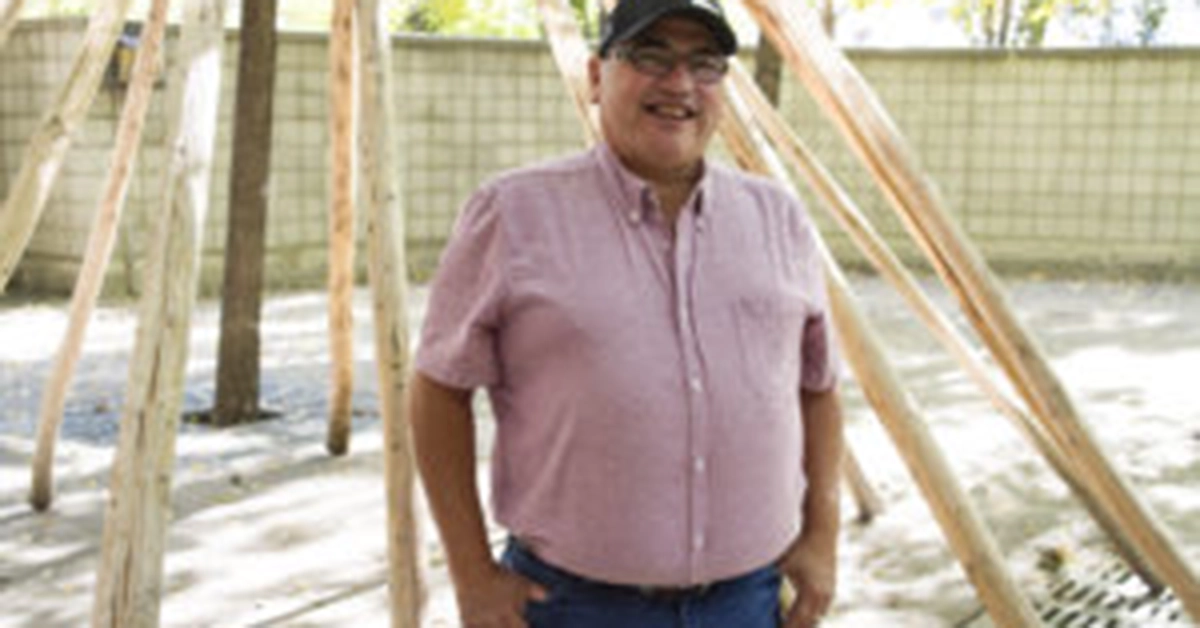MacEwan University’s Aboriginal Education Centre provides the campus community with a chance to learn from indigenous Elders in a series called Tipi Teachings. On Sept. 18, the centre held a session called “Teaching of the Tipi within Families,” which was hosted by Elder Rick Lightning from Maskwacis.
The tipi is a structure traditionally used by indigenous peoples from the plains regions of the land we now know as Canada and the United States. Families lived in tipis the same way we live in houses today. Sleeping, cooking, eating and visiting all took place inside, around a central fire. “There’s a system to everything [in a tipi],” says Lightning. He explains that the family sleeps in a circle, fanning out from oldest to youngest, with males on one side and females on the other. The children sleep closest to the doors, with the boys beside the firewood and the girls beside the food.
The girls are responsible for cooking and feeding the family. Lightning, who is Cree, says youth often approach him and ask why women are treated differently than men in their culture. “In our culture, gender is very important,” says Lightning. “[Women] are the caretakers of our family. There’s a saying with our people — ‘If you have a sick mother dog, you’ll have sick puppies.’ That’s an ugly saying, but it’s true . . . if the mother is strong, you’ll have strong children.”
Children are important in Cree culture, says Lightning, but it can be difficult for some indigenous families to care for their kids. Lightning ties this to the effects that residential schools had on both parents and children in indigenous families. “These were children taken out of healthy homes. They weren’t taken out of alcoholic homes or drug abuse homes or any of that. They were taken out of healthy [homes], and they were wealthy with knowledge and love.”
In contrast to the affection they experienced in traditional families, children in residential schools were starved for emotional attention. “I’ll tell you one thing: in residential schools, you never heard the word ‘love’ at you as an individual.” Lightning suggests that some people who were raised in residential schools struggle to form healthy relationships as adults because they didn’t have healthy relationships modelled for them as children.
The impact of residential schools on indigenous children has changed their cultures permanently. Now, concepts that were traditionally taught by families are often misunderstood. “We have two levels of family systems,” says Lightning. “You have what was and what is.” For example, people today often express concern about gender inequality. Lightning says that, with regards to Cree culture, this is because people are looking in from outside, not understanding the way things were and the important status that women hold. “My wife runs the house,” he says. “She’s the boss.”
Women may have more responsibilities than men, but Lightning says this makes sense. [pullquote]“We don’t bring life into the world,” he says. “Your responsibilities are more intense than ours.”[/pullquote]





0 Comments